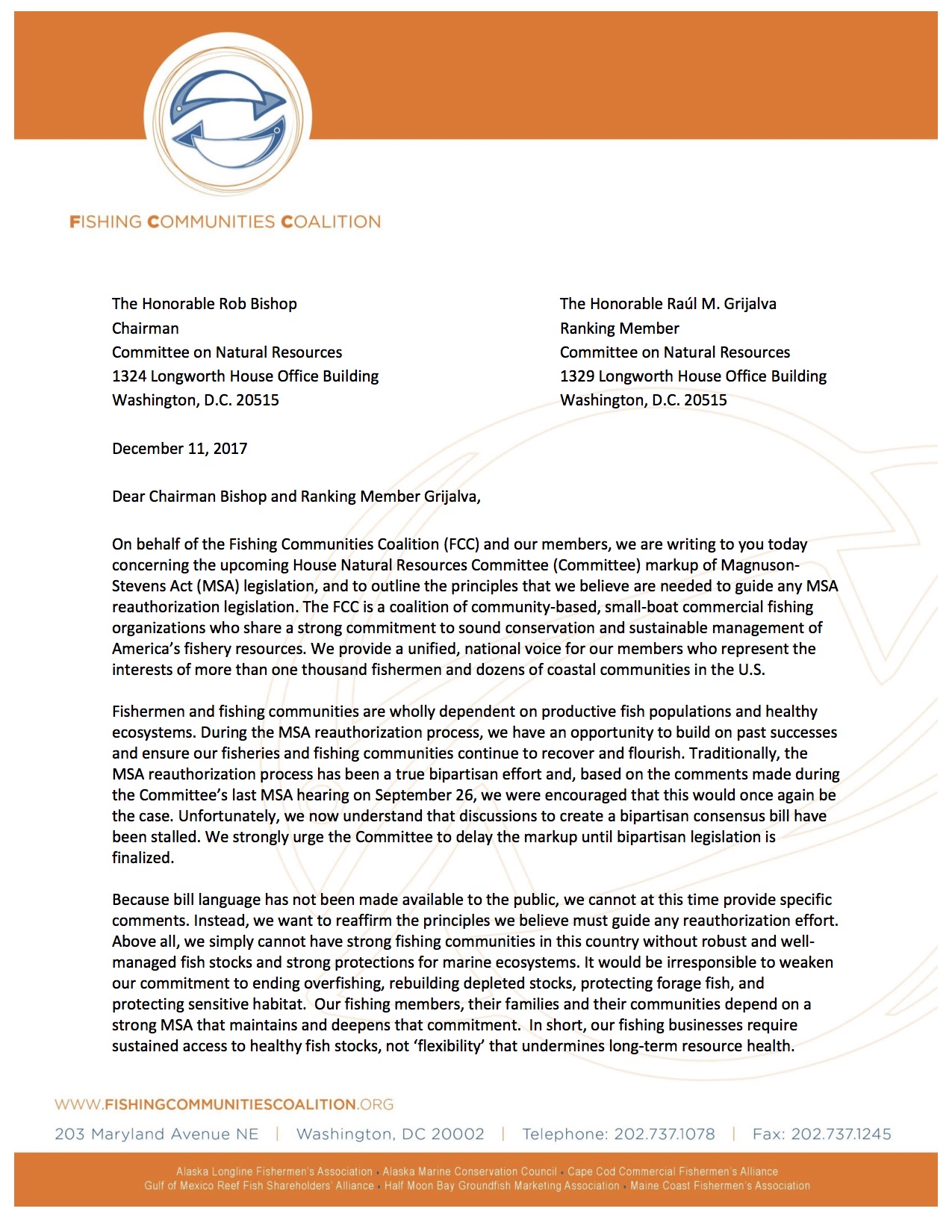MORRO BAY COMMUNITY QUOTA FUND JOINS FISHING COMMUNITIES COALITION
Coalition Grows its Ranks as Community Fishermen Ramp Up Efforts to Defend Sustainable Fisheries and Support Next Generation of Fishermen
Washington, DC – The Fishing Communities Coalition (FCC) welcomed its newest member this week, as the Morro Bay Community Quota Fund - located on California’s Central Coast - joined the nation’s leading association of sustainability-minded, small-boat commercial fishing organizations.
The announcement comes as Congress weighs reauthorization of the Magnuson-Stevens Fishery Conservation and Management Act (MSA) and the Young Fishermen’s Development Act, both top FCC priorities.
“At this critical moment, we are very pleased to welcome the Morro Bay Community Quota Fund to our growing coalition of sustainability-minded commercial fishing groups from across the country,” said John Pappalardo, FCC President and CEO of the Cape Cod Commercial Fishermen’s Alliance. “We look forward to working with our new partner to defend accountability under the MSA and secure passage of the Young Fishermen’s Development Act.”
“The Morro Bay Community Quota Fund strongly supports the FCC’s mission of advancing the economic and environmental performance of America’s small-boat fishing communities,” said Dwayne Oberhoff, Executive Director of the Morro Bay Community Quota Fund. “We are very pleased to join this important effort to advance conservation-minded solutions to local, regional and national fisheries management issues.”
With the addition of the Morro Bay Community Quota Fund, the FCC now has seven member organizations representing over 1,000 fishermen from Maine, Cape Cod, the Gulf of Mexico, California, and Alaska.



